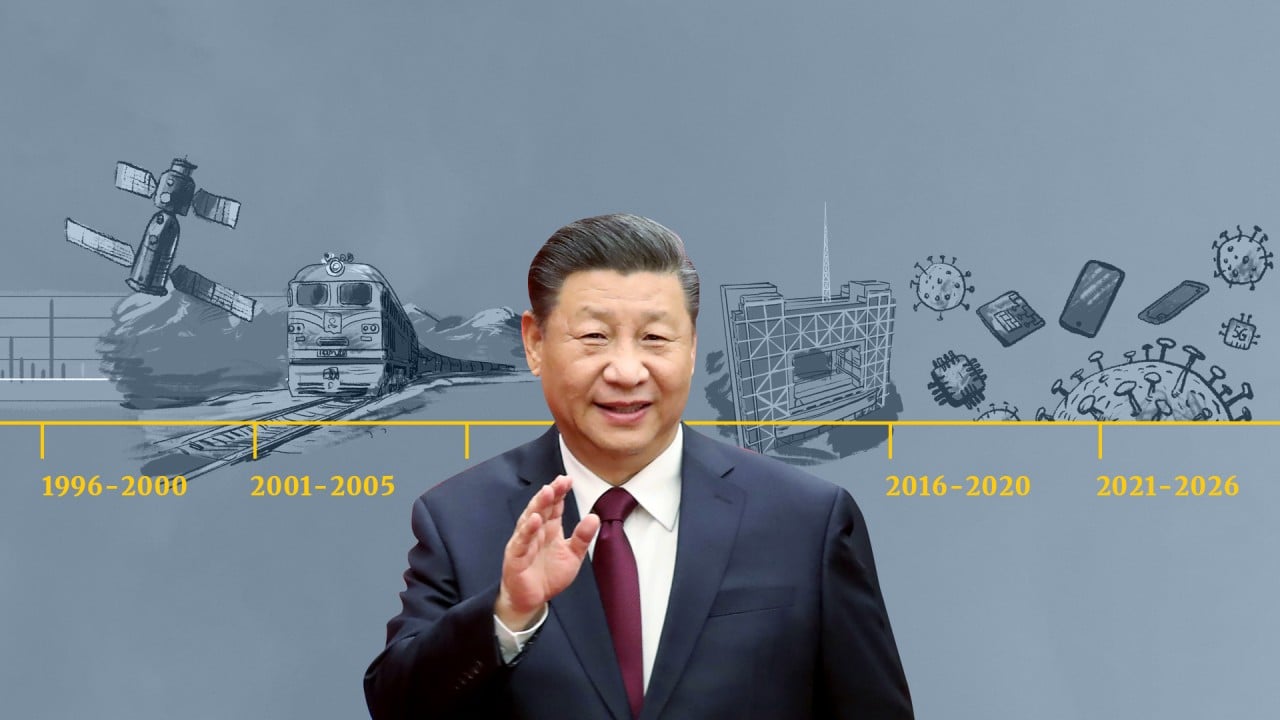
Hong Kong stocks edge up as city eases more measures aimed at repairing economy
- Hang Seng Index rises 0.2 per cent, paring gains of as much as 1.5 per cent, after Beijing summons 34 big internet companies for a meeting
- Hong Kong has made progress on a travel bubble with Singapore, while pretested visitors from China will be allowed to enter the city without the need to quarantine
Gains were, however, limited as a slump in Chinese technology stocks weighed on the benchmark. The Hang Seng Index rose 0.2 per cent to 28,497.25, paring gains of as much as 1.5 per cent. The gauge had lost nearly 2 per cent in the preceding two trading days amid a slump in technology shares.
The government has also made progress on a travel bubble with Singapore, while visitors from mainland China would be allowed to enter Hong Kong from mid-May without having to undergo quarantine, as long as they have been pretested for Covid-19.
Between the launch of the local vaccination programme in late February and Monday, about 597,400 people, or 8 per cent of the city’s 7.5 million residents, had received first doses, according to official statistics. About 280,500 people, or 3.7 per cent of the population, have received a second dose as well.
The eased social restrictions have given market sentiment a boost, and shares of shopping centre operators and local retailers will benefit directly, said Stanley Chan, director of research at Emperor Securities. For instance, on Tuesday Hong Kong shopping centre and hotel operator Wharf REIC led gains among blue chips in Hong Kong, rising 6.2 per cent to HK$45.65, its biggest single-day gain since February. New World Development, which also owns and operates shopping malls in the city, rose 1.7 per cent to HK$41.50, reaching its highest level since July.
“The trend is for the restrictions to gradually ease, as the pandemic situation is coming under control, along with the vaccination roll-out,” said Chan. He said he believed that there will be a chance for local stocks to continue to outperform the market, as capital flowed out of technology stocks.
The Hang Seng Tech Index slumped by as much as 1.7 per cent in afternoon trading on Tuesday on news that Beijing had summoned 34 big internet companies for a meeting. These companies have been asked to start self-checks and to rectify anticompetition actions, according to the state-owned Xinhua News Agency.
Alibaba, which owns the South China Morning Post, added 0.4 per cent to HK$233.20, paring an earlier rally of as much as 4 per cent. The e-commerce giant rose 6.5 per cent on Monday in its best rally since January 20 after agreeing to pay a record US$2.8 billion antitrust penalty.
Antitrust regulation will continue to be the focus for regulators this year, UOB-Kay Hian analyst Julia Pan said in a report on Tuesday. “We believe leading internet companies such as Tencent and Meituan with dominant market positions are facing a similar risk to Alibaba, as a variety of approaches will be taken by regulators to rein in the internet giants,” she said.
Tencent fell 0.9 per cent to HK$608, extending a 1.1 per cent decline reported on Monday. Meituan was the worst performing blue chip, falling 7.5 per cent to HK$276, while JD.com lost 3.5 per cent to HK$298.40.
“Investors are becoming worried about the antitrust regulations. They think other big technology firms will be subject to penalties,” said Kenny Wen, wealth management strategist at Everbright Sun Hung Kai.
On the mainland, the Shanghai Composite fell 0.5 per cent, while the CSI 300 index of the biggest stocks in Shanghai and Shenzhen slipped 0.2 per cent. Liquor distiller Kweichow Moutai rose 0.6 per cent to 2,021 yuan, while Ping An Insurance fell 0.8 per cent to 76.56 yuan.
China’s central bank announced on Monday that lending in the first quarter hit a record high of 7.67 trillion yuan (US$1.17 trillion), as policymakers aided the recovery in the world’s second-largest economy.
Three companies debuted on mainland bourses on Tuesday. Ningxia Xiaoming Agriculture & Animal Husbandry soared 581.7 per cent to 30.95 yuan from its listing price of 4.54 yuan in Shenzhen. In Shanghai, WindSun Science & Technology, which manufactures power equipment, gained 53.7 per cent to 22.25 yuan from its IPO price of 14.48 yuan. Biotechnology service provider Novogene added 114.7 per cent to 27.40 yuan from its debut price of 12.76 yuan.



